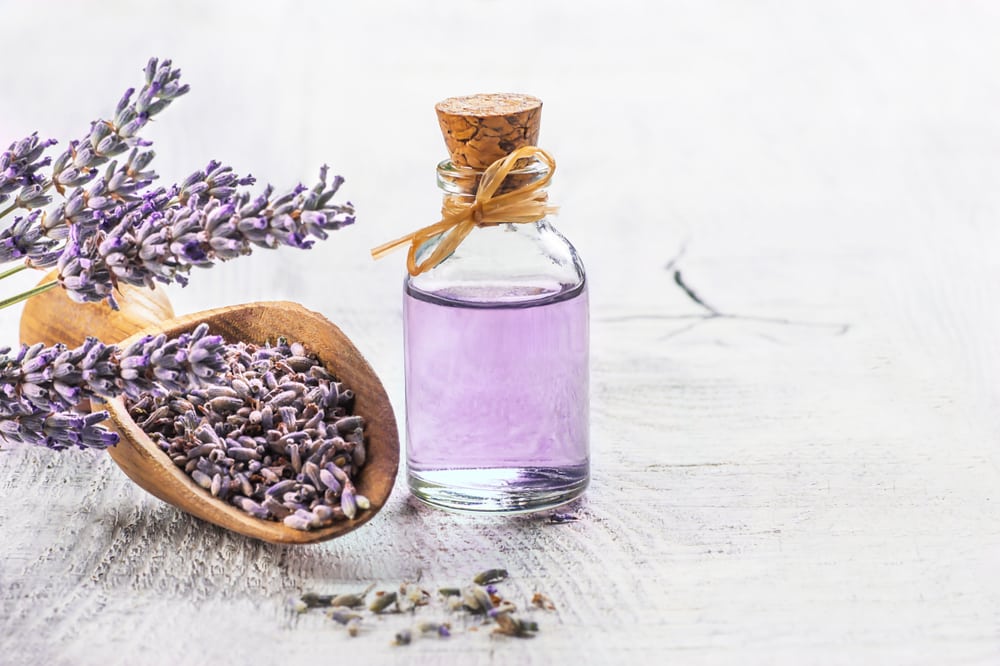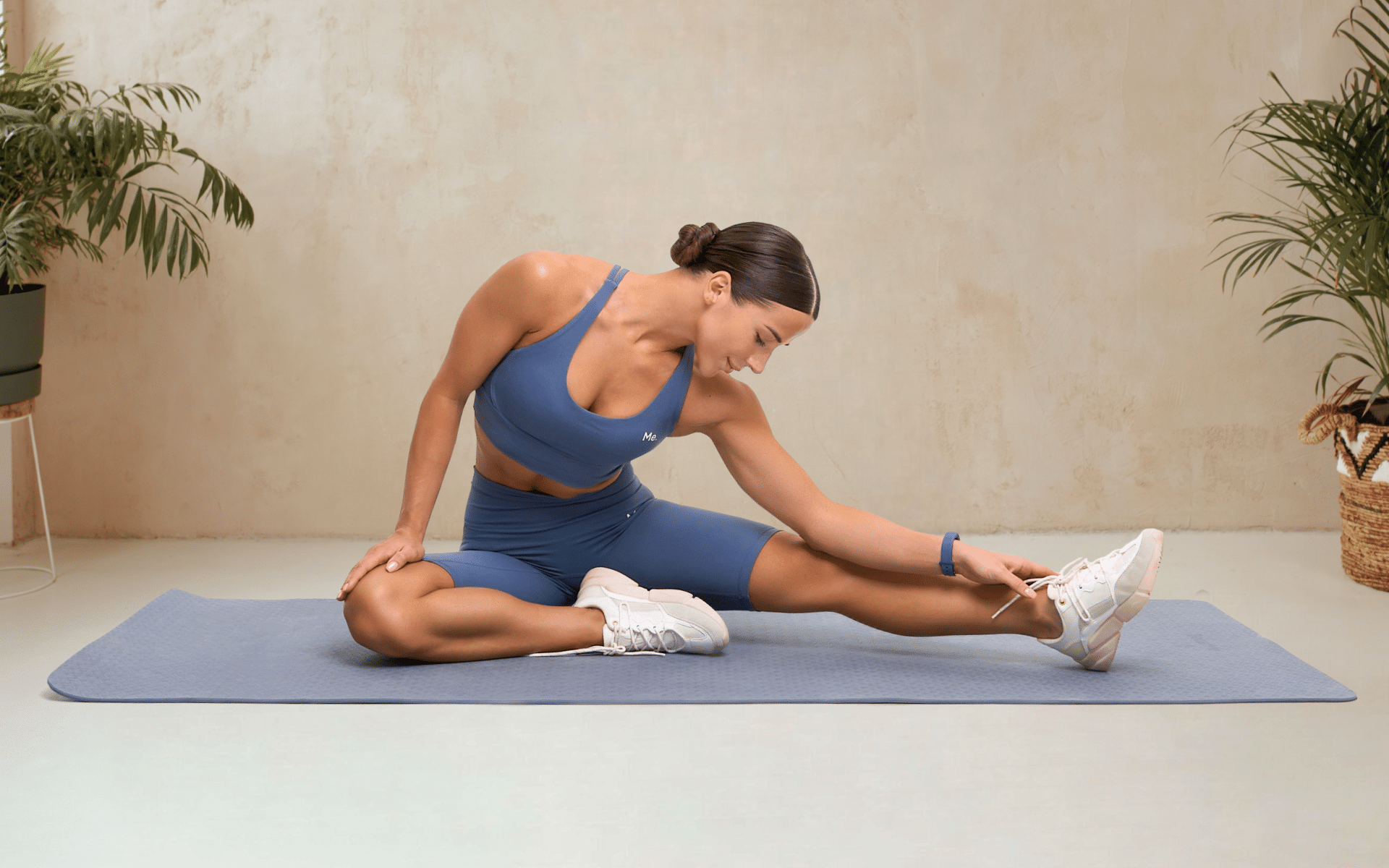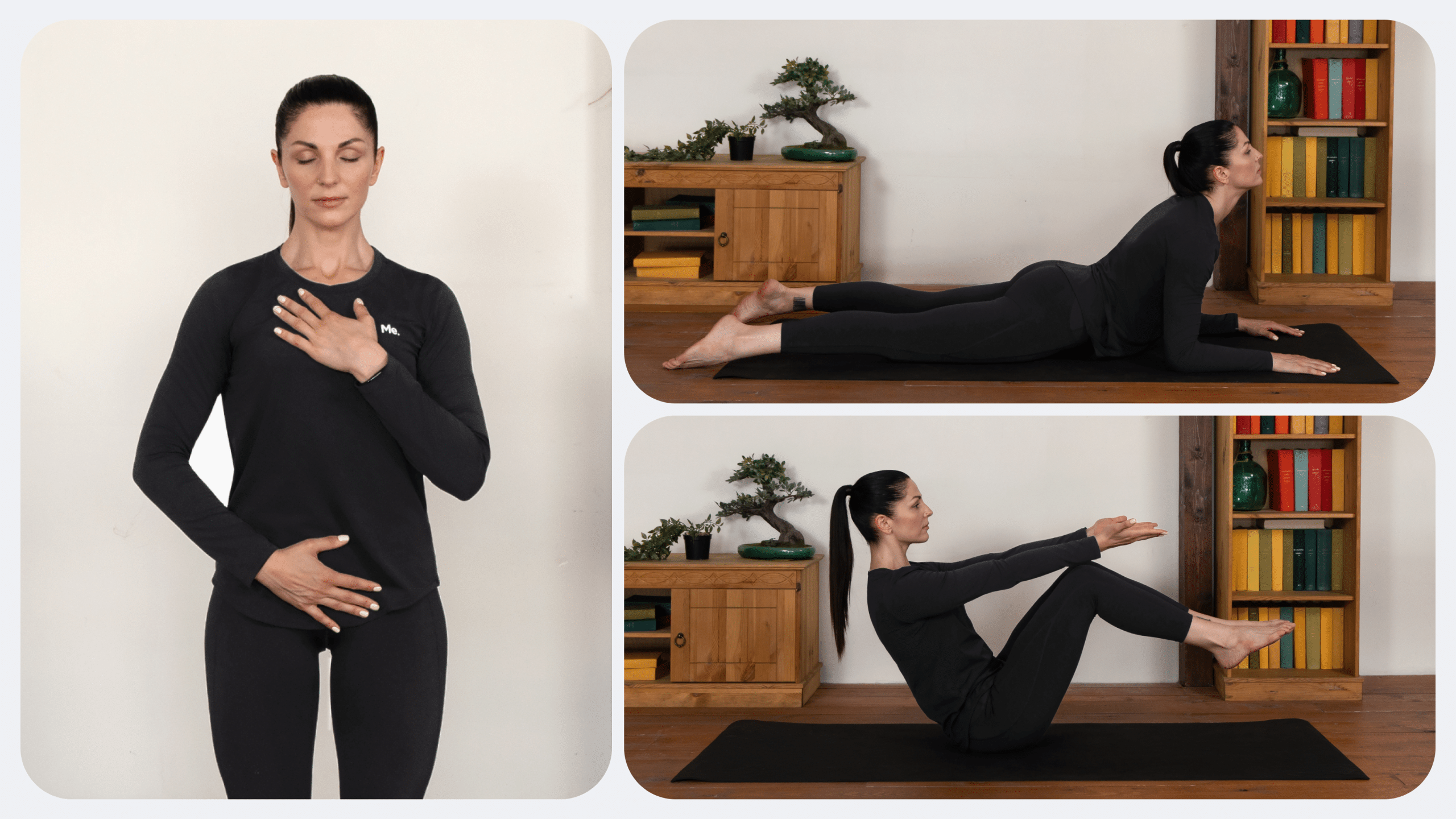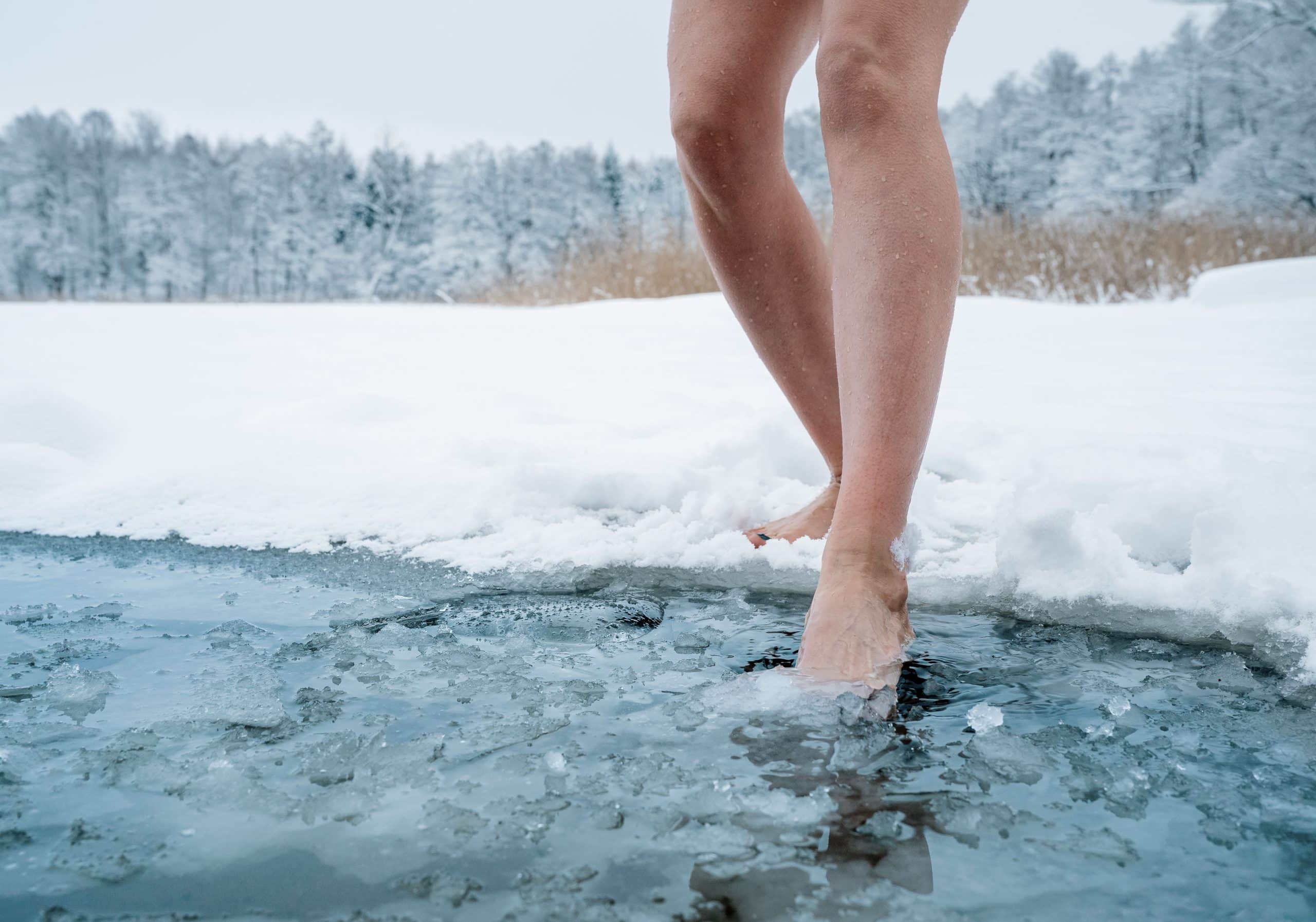The skin is the largest part of the body and demands continual care. In addition, good skin highly determines an individual’s confidence, which is why many people are crazy about skin care. Their focus is to clear the skin, particularly that of the face wherever wrinkles, acne, sun damage, pigmentation, and other skin conditions appear. With the increased interest in skin care, many skincare products are on the market. But not all are ideal for use on specific body parts, such as the face. Similarly, some products should never be used alone. This begs the question, is lavender oil good for all areas of your skin? Find out as we evaluate the scientifically backed lavender skin benefits.
Get your personalized
meal plan!
What Is Lavender?
Lavender is a herb that has recently become the subject of interest in different fields due to its many possible benefits. For example, its flowers and oil are being used for therapeutic purposes. Medicine Net states that lavender oil is used by some people for insomnia, depression, restlessness, and digestive problems such as abdominal swelling caused by gas, intestinal gas, nausea, upset stomach, and loss of appetite (6).
In addition, some individuals use this oil for painful conditions such as toothaches, migraines, joint pain, nerve pain, sprains, and sores (6). But more recently the oil has become a staple in the skincare market. The oil is promoted as beneficial to the skin in many ways.
Because of the many skincare fads, one cannot help but question its scientifically-approved skin benefits. Is lavender oil bad for skin? Is it a skincare fad? Does lavender oil actually work? These are some of the questions we will be answering here today.
Read More: Lemon Oil For Skin – Make Your Skin Fresh And Invigorated
Lavender Oil Benefits For Skin
Lavender oil benefits your skin in many ways due to its biological activities and therapeutic properties. For example, studies show lavender oil has antioxidant, anticonvulsant, antimicrobial, anxiolytic, and anti-inflammatory activities (1). These properties and activities contribute to its many skin benefits, some of which include:
Acne Treatment
The number one reason lavender oil is loved as a skin care product is that it may heal and prevent acne. According to Medical News Today, the essential oil is naturally antibacterial, meaning it kills any bacteria that may cause acne (5).
The oil is non-comedogenic, meaning it does not infiltrate or clog your pores. Remember that clogged pores are caused by a buildup of oil, dirt, or dead skin cells. Eventually this leads to acne, and that treatment requires non-comedogenic skin care products to unclog these pores.
Lavender oil is one of these products, as we have stated above. Besides unclogging your pores the oil can be used as a daily toner or to treat pimples. Please note that you cannot directly use lavender oil alone on your skin.
If you want to use it as a toner, you can mix it with hazel. To treat pimples, mix it with argan or tea tree oil (5).
Edema Treatment
Edema is fluid retention that results in swelling and puffiness in different parts of the body, particularly the skin in the arms, legs, hands, ankles, and feet. This can also affect the lungs, muscles, bowel, brain, and eyes (4). Edema is mainly experienced by pregnant people and older adults or as a result of certain chronic conditions (4). It can also be acute and localized, as a result of an infection or injury.
A 2018 study found that Lavender (Lavandula angustifolia) Essential Oil (LEO) had antiedematogenic and anti-inflammatory activities that could help with edema which was caused by acute inflammation in animals (2). The oil was seen to affect inflammatory response by exerting anti-inflammatory effects at low doses. That said, the oil has been reported as an irritant effect at high doses (2). Nevertheless, it would be best to seek consultation before using this oil for edema treatment.
Skin Soothing
Lavender oil has antifungal and anti-inflammatory properties that can help soothe your skin. They work by preventing inflammation caused by bacteria and fungus on your skin (5). You may experience different results than soothing when you apply lavender oil directly on your skin. Note that this oil can irritate your skin when not mixed with a carrier before direct application to the skin.
When it comes to weight loss, progress is made by inches, not miles, so it’s much harder to track and a lot easier to give up. BetterMe app is your personal trainer, nutritionist and support system all in one. Start using our app to stay on track and hold yourself accountable!
Can You Put Lavender Oil On Eczema?
Eczema (Atopic dermatitis) is a condition that results in skin patches that become inflamed, cracked, itchy, and rough. In some cases, it can also cause blisters. It often occurs in children of any age and tends to flare periodically (12).
In the U.S., roughly a quarter of children have eczema, as do 10% of African Americans, 13% of Native Americans, 13% of Asian Americans and Pacific Islanders, and 11% of white individuals (12).
Some people suggest using lavender oil on children with this condition to ease inflammation and irritation. When used with a carrier oil, lavender oil is said to help reduce itchiness, inflammation, dryness, and flakiness. But WebMD disagrees with this based on the following scientific evidence (1):
-
Lavender Oil Is An Essential Oil
WebMD states that lavender oil or any other essential oil does not go well with eczema because they are too harsh (1). As a result, they can make your skin react and raise inflammation instead of easing it.
Additionally, the oil can leave tiny breaks in your skin barrier, causing it to easily absorb allergens and irritants from the essential oils (1).
-
It Is Unregulated For Eczema Treatment
Despite the many claims on its application for eczema treatment, the FDA has never approved it for such use. Instead, it has only approved these products for use in cosmetics, meaning they are not approved for eczema treatment (1). This lack of FDA approval also magnifies the lack of solid scientific evidence on using lavender oil to treat eczema.
-
The Ingredients’ List Varies
We know you cannot directly apply lavender oil to your skin without a carrier. Unfortunately, mixing oils can result in a highly concentrated liquid filled with chemicals that is not ideal for eczema. For example, they may contain chemicals such as alcohols, terpenes, esters, aldehydes, ethers, and ketones (1).
If you have eczema, WebMD suggests staying away from lavender oil, even when you mix it with a milder carrier oil or are considering adding it to your bath water. In addition, it would be best to avoid products with these oils in their ingredients list (1).
Conversely, Medical News Today reports that several studies actually support using lavender oil for eczema, due to its antimicrobial and antifungal properties (5). The stated benefit is that the oil kills a bacteria that causes eczema known as Staphylococcus aureus which may cause eczema (5).
In light of these arguments, you may be confused about whether or not to use lavender oil to treat eczema. Therefore, it would be best to talk to a dermatologist for better insight and guidance on the best remedies and products for eczema treatment.
Read More: Echinacea Benefits For Skin And Overall Health
How To Use Lavender Oil For Skin Benefits
After seeing the many benefits lavender oil has for your skin, you may be interested in adding it to your skincare products. But before you do that there are a few things you need to know about using lavender oil for your skin. They are as follows:
-
It Is An Essential Oil
Lavender oil is an example of essential oil, as mentioned earlier. Unfortunately, you cannot use any essential oil directly on your skin because some are too harsh. If you are planning to use lavender or any other essential oil on your skin, be sure to mix it first with a carrier.
Again, use a carrier that aligns with your goal of using these oils in the first place. For example, if you want these oils to treat pimples, you can mix lavender oil with tea tree or argan oil (5).
-
Application
Regardless of the oil’s intended purpose, you can directly apply and massage the oil into your skin using your fingers. Note that you should first thoroughly wash your hands before applying the lavender oil mixture to your skin.
Alternatively, you can use clean cotton pads and later dispose of them.
-
Steaming
You can also use lavender oil in a steam facial for acne treatment or similar issues. Be careful and avoid exposing your face to very hot steam (5).
Is Lavender Oil Good For Black Skin?
One of the uses of using lavender oil, especially among people with dark skin, is for skin lightening. Skin lightening is sometimes referred to as skin bleaching, meaning lightening dark areas of the skin using bleaching creams, skin brighteners, fading creams, or whiteners.
This has become prevalent nowadays, hence the craze for skin-lightening products.
Most evidence shows that lavender oil is suitable for all skin types for its antibacterial and anti-inflammatory effects.
However, there is no denying that there have been several rumors about this essential oil lightening the skin. According to Medical News Today, more research is required to back up this supposed effect. But for now, these claims remain, with some people even adding the oil to reduce skin redness and discoloration (5).
Is Lavender Tea Good For Your Skin?
Besides lavender oil, some people have talked about lavender tea benefits for skin. Some people believe that the aroma of lavender tea has a calming effect, and that it may benefit the body in other ways, but what might it do for your skin?
Most studies exploring the benefits of lavender for skin have used the oil, not tea (9). So it’s unclear if drinking lavender tea would have any benefit for your skin.
If you wish to free yourself from all the extra pounds that have been weighting you down for way too long, start using the BetterMe app and overhaul your entire life!
Lavender Oil For Hair
Besides lavender oil being an incredible skin care product, science also shows it is an excellent product for the hair. Here are some of the possible hair-related benefits of lavender oil:
-
Controlling Dandruff
WebMD acknowledges that lavender oil deeply conditions your hair, which helps keep it shiny and controls dandruff (3). It is worth noting that you only need to use a few drops of lavender oil for this benefit. Again, note that you should mix it with at least two ounces of carrier oil like coconut oil. Alternatively, you can mix it with a conditioner or different types of shampoos (3).
-
Prevents Hair Loss (Alopecia Areata)
There may be evidence suggesting that using lavender oil for your hair can prevent hair loss in combination with other oils from cedarwood, rosemary, and thyme (6). One study found that 44% of patients who massaged this combination of oils into their scalp daily for 7 months saw an improvement in their condition.
Other Benefits Of Lavender Oil
Lavender oil is also linked to some other possible health benefits due to its anti-inflammatory and antiseptic properties. Some of these benefits include:
-
Treatment Of Several Neurological Disorders
According to a 2013 review, there is growing evidence that suggests that lavender oil could be an effective medicine for certain neurological disorders. Different animal and human studies have shown lavender oil contains neuroprotective, analgesic, anxiolytic, sedative, mood stabilizer, and anticonvulsant properties (7). These properties are believed to hold promise for future developments in treating several neurological disorders (7).
-
Treatment Of Anxiety And Other Related Conditions
Medical News Today also reports that lavender oil might be effective for treating anxiety and related conditions, but in the form of silexan. Silexan is a capsule-form lavender-oil preparation that may have anxiolytic and anxiety-reducing properties (11).
This is supported by WebMD, which states that taking silexan by mouth seems to relieve anxiety. Alternatively, lavender oil aromatherapy or aromatherapy massage have also been used to relieve the same (8).
-
Reducing Menstrual Cramps Or Dysmenorrhea
Most people experience painful cramps during that time of the month. Using lavender oil aromatherapy has been seen to reduce menstrual pain intensity (8).
-
Reducing Pain After Surgery
Evidence suggests using lavender oil alongside pain medications helps reduce pain experienced by some people after surgery (8).
-
Treating Fungal Infections
Lavender oil could effectively treat fungal infections, as it has been shown to combat strains that cause these infections (11). It is thought to work by destroying the membranes of the fungal cells (11).
-
Wound Healing
Evidence from animals shows lavender oil may also help in the fast healing of wounds by stimulating collagen production. Similarly, evidence shows that an ointment made from lavender oil may reduce scarring through promoting tissue growth. That said, it would be best to talk to your doctor before using this essential oil for scars or healing wounds.
-
Treats Tummy Problems
Lavender has antibacterial properties that may treat an upset stomach and other stomach problems (10). WebMD also reveals that lavender oil might help fight colitis and colon inflammation that can cause pain and diarrhea (10).
It is believed to work by fending off bacteria and protecting your infection-fighting strains. So, you can try sprinkling dried culinary lavender on Greek yogurt if you have stomach problems (10). But it would be best to do this after consulting your doctor.
-
Reduces Motion Sickness
Motion sickness occurs when the sensation in your inner ears overlaps with how you view movements around you. This makes you confused, resulting in dizziness and nausea (10). Lavender has been shown to reduce this effect by distracting your sense of smell. You can also add other sensory treats such as ginger candies for faster effects (10).
Risks Of Using Lavender Oil For Your Skin
Unfortunately, despite its good profile and benefits for the skin, lavender oil also carries some risks. One of the risks includes irritation, which occurs when you apply this or any other essential oil directly on your skin.
So, as mentioned earlier, mix lavender oil with a carrier oil before applying it to your skin. Similarly, using lavender oil for your skin or other topical products containing this oil has been linked to allergic skin reactions (5).
You may find that some people may get hives or rashes when they use products containing lavender oil. In such a case would be best to immediately stop using such products and seek medical attention when you get hives or rashes.
The Bottom Line
The scientifically proven lavender skin benefits include reducing acne, soothing your skin, and treating inflammation. Although lavender oil is said to help treat eczema, there is insufficient evidence to prove this. Be very careful when using lavender oil for the skin as it causes irritation, hives, and rashes when a carrier is not used. Be sure to talk to a dermatologist before using lavender oil for any skin benefit.
DISCLAIMER:
This article is intended for general informational purposes only and does not serve to address individual circumstances. It is not a substitute for professional advice or help and should not be relied on for making any kind of decision-making. Any action taken as a direct or indirect result of the information in this article is entirely at your own risk and is your sole responsibility.
BetterMe, its content staff, and its medical advisors accept no responsibility for inaccuracies, errors, misstatements, inconsistencies, or omissions and specifically disclaim any liability, loss or risk, personal, professional or otherwise, which may be incurred as a consequence, directly or indirectly, of the use and/or application of any content.
You should always seek the advice of your physician or other qualified health provider with any questions you may have regarding a medical condition or your specific situation. Never disregard professional medical advice or delay seeking it because of BetterMe content. If you suspect or think you may have a medical emergency, call your doctor.
SOURCES:
- Are Eczema and Essential Oils a Smart Mix? (2021, webmd.com)
- Effect of Lavender (Lavandula angustifolia) Essential Oil on Acute Inflammatory Response (2018, ncbi.nlm.nih.gov)
- Essential Oils for Your Hair (2020, webmd.com)
- Everything you need to know about edema (2021, medicalnewstoday.com)
- How to use lavender oil for the skin (2020, medicalnewstoday.com)
- Lavender (2021, medicinenet.com)
- Lavender and the Nervous System (2013, ncbi.nlm.nih.gov)
- Lavender – Uses, Side Effects, and More (2020, webmd.com)
- Plants used to treat skin diseases (2014, ncbi.nlm.nih.gov)
- Surprising Uses for Lavender (2020, webmd.com)
- What are the health benefits and risks of lavender? (2019, medicalnewstoday.com)
- What to know about eczema (2021, medicalnewstoday.com)
- What to know about wrinkles (2020, medicalnewstoday.com)





















